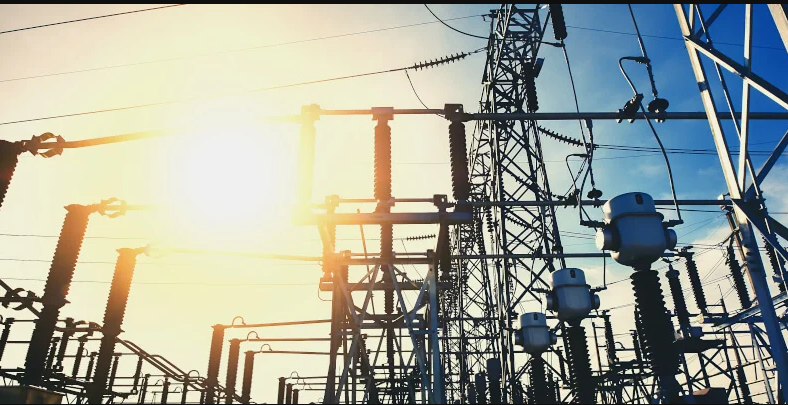The North Bihar Power Distribution Company Limited (NBPDCL) plays a pivotal role in the power distribution landscape of the North Bihar region in India. With a commitment to providing reliable and efficient electricity supply to millions of residents, NBPDCL has become an integral part of the lives of people in this region. In this article, we will delve into the essential role that NBPDCL plays in power distribution and explore the various aspects of its operations that contribute to the well-being and development of the area.
Electrifying North Bihar: The Beginning of NBPDCL
NBPDCL, established in 2012, is a state-owned electricity distribution company that operates within the jurisdiction of the North Bihar region. The company was formed as a part of the restructuring of the Bihar State Electricity Board (BSEB) and was tasked with the distribution of electricity to the urban and rural areas of the region. This restructuring aimed to improve the efficiency and service quality in the power distribution sector.
Infrastructure Development and Maintenance
One of the primary responsibilities of NBPDCL is the development and maintenance of the electrical infrastructure in the North Bihar region. This includes the construction of new substations, transformers, and distribution lines. NBPDCL invests significantly in modernizing the infrastructure to meet the growing demand for electricity and to ensure the safety and reliability of the supply.
The construction and maintenance of infrastructure are crucial for the power distribution process. Well-maintained transmission lines and substations minimize power losses and ensure that electricity reaches consumers without disruptions. This also contributes to the reduction of technical and commercial losses in the power distribution network, which is essential for the financial sustainability of NBPDCL.
Supplying Electricity to Urban and Rural Areas
NBPDCL is responsible for supplying electricity to both urban and rural areas within its jurisdiction. The company’s efforts in electrifying rural areas have been particularly significant. Electrification of rural regions is not only essential for improving the living standards of the rural population but also plays a crucial role in promoting economic development and reducing disparities between urban and rural areas.
The government has launched several initiatives to provide electricity to all households, and NBPDCL plays a vital role in implementing these schemes. The Pradhan Mantri Sahaj Bijli Har Ghar Yojana (Saubhagya) is one such initiative that aims to provide electricity connections to all un-electrified households, including those in remote and rural areas. NBPDCL actively participates in these efforts to extend the benefits of electricity connections to every household in its region, thereby improving their access to electricity and facilitating easier payment of electricity bills. This initiative not only ensures access to power but also contributes to the overall electrification of the region, making it more convenient for residents to manage their electricity bills and enjoy the benefits of a reliable power supply.
Ensuring Quality and Reliability
Reliability of electricity supply is of paramount importance to both residential and commercial consumers. NBPDCL places a strong emphasis on ensuring that consumers receive a consistent and uninterrupted power supply. To achieve this, the company regularly monitors its distribution network, identifies weak points, and takes preventive measures to reduce the downtime caused by faults and outages.
Moreover, NBPDCL is actively involved in implementing smart grid technologies and advanced metering infrastructure. These technologies enable better monitoring of the power distribution network, prompt fault detection, and quicker restoration of power supply in case of outages. The adoption of such modern technologies enhances the overall reliability of the power distribution system.
Customer-Centric Approach
NBPDCL places customers at the center of its operations. The company has implemented various customer-centric measures, including online bill payment facilities, customer care helplines, and grievance redressal mechanisms. These initiatives aim to improve customer satisfaction and make it easier for consumers to access information and services related to their electricity supply.
The company also organizes awareness campaigns and outreach programs to educate consumers about energy conservation, safety measures, and the efficient use of electricity. This proactive approach not only benefits consumers but also contributes to the overall sustainability of the power distribution system.
Challenges and Future Prospects
While NBPDCL has made significant strides in improving power distribution in North Bihar, it faces several challenges. The region’s population is growing, and so is the demand for electricity. Meeting this increasing demand while ensuring financial viability and reducing technical losses remains a persistent challenge.
Moreover, the power sector in India is undergoing substantial reforms, and NBPDCL must adapt to these changes. These reforms include the promotion of renewable energy sources, the integration of distributed energy resources, and the implementation of competitive market mechanisms.
In conclusion, NBPDCL plays a vital role in the power distribution of the North Bihar region. Its efforts in infrastructure development, electrification of rural areas, ensuring reliability, and maintaining a customer-centric approach are critical to the region’s overall development. While challenges remain, NBPDCL’s commitment to providing quality electricity services and its adaptability to evolving industry trends position it as a key player in the region’s journey towards a brighter and electrified future.
